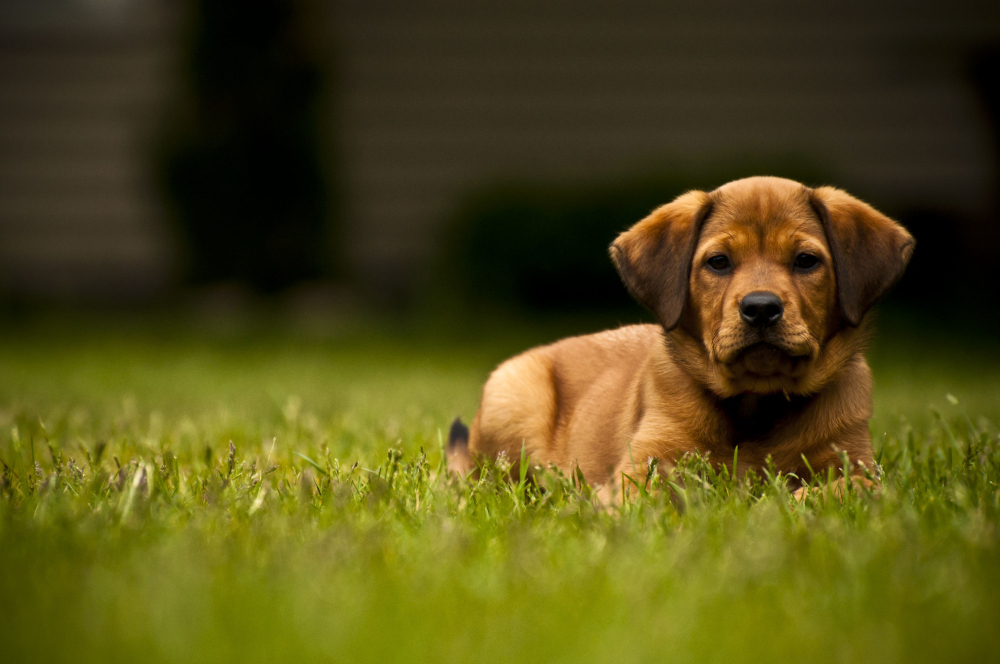Bringing a new puppy home is a pleasure, but often a challenge. Your home environment is the primary source that creates and develops your puppy’s behavior for years to come. What a puppy learns during their first 16 weeks of life will play a tremendous role in how they interact with the family; and how they respond to circumstances and situations encountered over the course of life. Whether you are thinking about getting a puppy, actively searching for one, or you just welcomed home your new K9 companion, follow these guidelines and you will develop a happy, confident, reliable puppy and great family companion!
- Search for a reputable veterinarian in your area and go to the practice you feel most comfortable with. You could ask other dog owners in your area if they have any recommendations as well. Remember your dog’s health and wellbeing is a lifelong commitment and so is the relationship with your veterinarian.
- Purchase a crate and have a plan for crate training. Depending on the size of your dog, you may need to buy multiple crates as they grow or buy a crate that has a divider and limit their space accordingly. A properly sized crate is essential because dogs are naturally clean animals and will not eliminate in their crate unless given enough room to eliminate in one spot and lie down in another.
- Potty training and crate training go hand in hand. Be sure to create a potty-training routine with your dog and help them learn to gradually hold it for longer periods of time. A good rule to stick by is for every month of age convert to one hour, for example, if your dog is three months old take them out every three hours. Monitoring your dog’s food and water intake will also help build a habitual potty routine. Dogs typically need one ounce of water per pound of body weight, following this guideline will limit accidents in the house.
- Understand the puppy you have today is not the dog you will have in the future; you are molding your puppy into the dog they will become. What you allow and do not allow will impact your dog’s perspective of the boundaries or lack thereof.
All dogs regardless of breed go through various developmental stages until they reach maturity. Your puppy requires proper, appropriate, and regular socialization to meet both mental and physical stimulation needs throughout the first three to four years of life. Some developmental stages to be aware of:
- Fear imprint period– During this time, any traumatic, painful, or frightening experiences will have a more lasting impact on your puppy than they would if they occurred at any other time. An unpleasant trip to the veterinarian for instance, at this time could forever make your dog apprehensive about vets. The first of two fear imprint periods occur between 8 and 12 weeks, while the second fear imprint period happens between 6 and 14 months. During this period, your dog may display superstitious behaviors towards normal objects and experiences they previously had no issues with.
- Sexual maturity period– Sexual maturity can appear in smaller dogs as early as five months. In large breeds, it can start as late as nine or ten months. In giant breeds, maturity does not take place until 12 or 18 months. In general, the larger the dog, the longer it will take to physically mature. It is wise to consult with your veterinarian and discuss a plan to spay or neuter if you do not have plans to show, breed, or compete with your dog in the future.
- Social maturity period– Social maturity occurs between 18 months and 3 years old. During this time dog owners begin to see undesirable behaviors develop due to bad training or lack of training during the first year of their puppy’s life. For instance, a dog may display territorial behaviors, hierarchy challenges, inappropriate interactions with all species, destructiveness, and in some extreme cases aggression.
You will be training your puppy the moment you bring them home because your puppy is always learning! If you find yourself overwhelmed by just how much attention your new puppy requires, you are unsure of how to deal with the behavior(s) your puppy is displaying, or you want to get it right with proper training from the start, call us and schedule a consultation today. During your one-hour consultation, our dedicated training professionals will evaluate your puppy and create a training program designed with you and your puppy’s success in mind.





